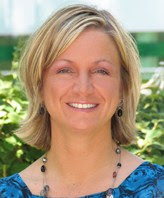 |
| By Liz McLachlan development associate Lighthouse of Oakland County |
"My parents have taught me that I am so lucky to have many nice things like toys, books, DVD's, and new clothes. So, now I want to help other children have something to smile about too," says Calen. The goal of CalenForKids.org is to create awareness within other children in hopes that they will also realize their good fortune and become inspired to lend a helping hand.
 |
| Calen with emergency pantry supplies |
At Lighthouse of Oakland County, we see the start of the new school year as the perfect opportunity to lay the foundation for youth volunteer engagement. Benefits to the volunteers include:
- Volunteering can teach skills that they will use later in life.
- Volunteering can teach them compassion and responsibility, and gratitude for the things they have.
- Children who volunteer are less likely to engage in risky behavior, more likely to feel connected to their communities, and tend to do better in school. (source: World Volunteer Web)
 |
| Boy Scouts from Troop 1032 volunteering in the Lighthouse food pantry, which serves ~650 people/month |
Does your organization offer projects for younger volunteers and their families? The following strategies can be incorporated into existing volunteer recruitment, planning, and placement activities to encourage community involvement and adapting volunteer projects for younger volunteers.
1. Know your audience. Review your current donor base and volunteers actively participating within your organizations. Are there schools, churches, or groups who work with children? Contact these individuals first; invite them to tour your location with their children.
2. Develop age-appropriate opportunities. One of the biggest mistakes an organization can do is offer an opportunity that is not meaningful to the volunteers. Yes, we all have the "must-get-done" projects, but when you develop a project that leaves a lasting impression, those volunteers will be back. Kids get bored easily, but when they are excited and engaged they will remember that project long after they leave.
3. Encourage volunteer autonomy. Kids have great ideas. If you are in need of a food drive, get the kids involved in the planning process. The more they "own" their project, the more successful they will be in achieving it.
 |
| Lilly created "Parties in a box" to provide birthday supplies to other children |
4. Planning is key! Families are busy and timing volunteer projects is crucial to successful volunteer engagement. Take time to know school schedules and plan projects around after school hours and planned days off. Offer projects on holiday breaks, teacher development days, and half-days.
5. Don't forget teams. Do you need a large project completed? Coaches and parents are great resources to help get the work done quickly. Volunteering is a great opportunity for team building.
These are just a few ideas to get started and now it's your turn. We would love to hear how your organization engages kids in community service and volunteer projects.
Please leave a comment below and share your ideas. You can also read more stories of our young volunteers here.


